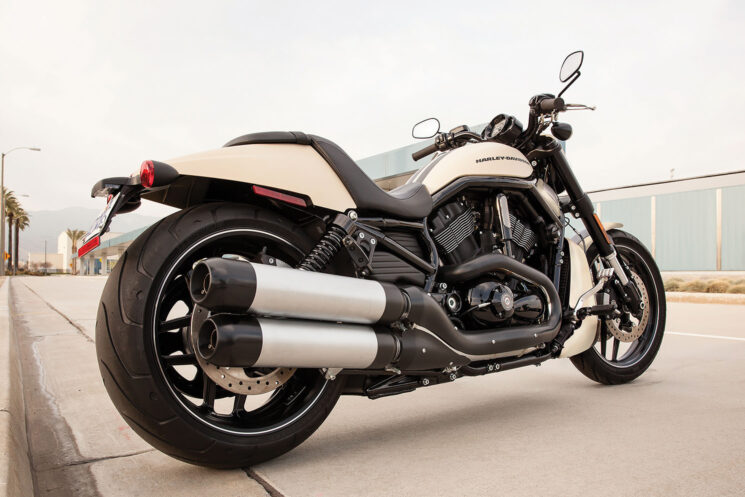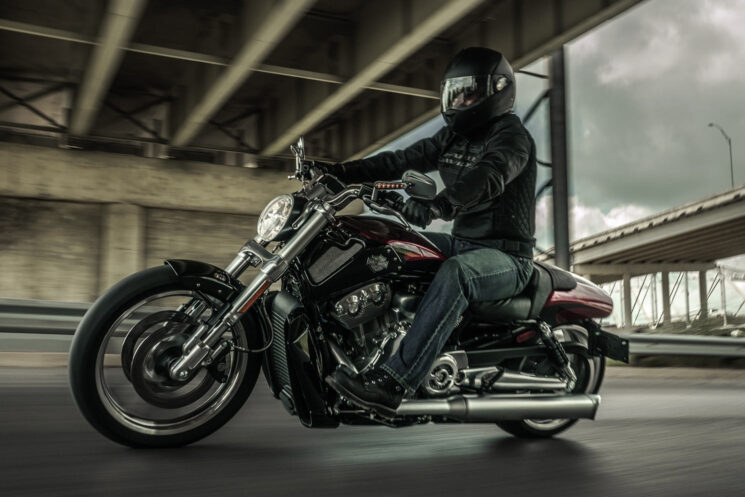
They say opposites attract, and aside from a historic reliance on air-cooled engines, Porsche and Harley-Davidson couldn’t be more apples to oranges. Back in the 1990s, Porsche was the foremost name in German performance engineering, while Harley’s offerings had become decidedly stagnant since the mid 80s. The result of this unlikely partnership was the Harley-Davidson V-Rod, a bike that would not only break Harley’s air-cooled mold, but also ring in a new era of OEM performance cruisers.
The Evolution engine has long been credited as the engine that saved Harley-Davidson, but Sportster, Dyna and big twin models still couldn’t challenge the performance and variety of foreign offerings. Harley needed a more powerful option, with a whole new image, and they rekindled an old relationship with Porsche to do it.
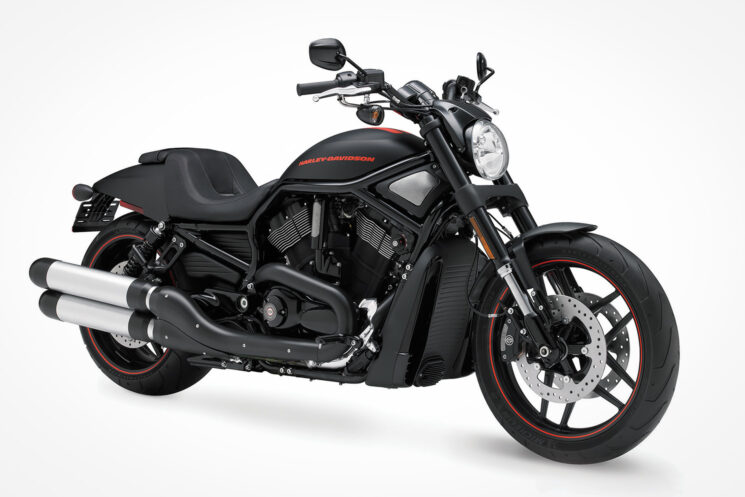
Porsche and Harley had first gotten together in the 1980s for Project Nova, which could have produced some game-changing, water-cooled V4 and V6 engines if it had come to fruition. For their second collaboration, a handful of H-D engineers traveled to Porsche Engineering’s facility in Germany to design an all-new roadgoing v-twin.
The Revolution engine, as it would come to be known, was not a clean-sheet design though. The project started with the water-cooled, 60-degree v-twin from the Harley VR1000 superbike, which already boasted quad cams and fuel injection, and was capable of over 10,000 rpm.
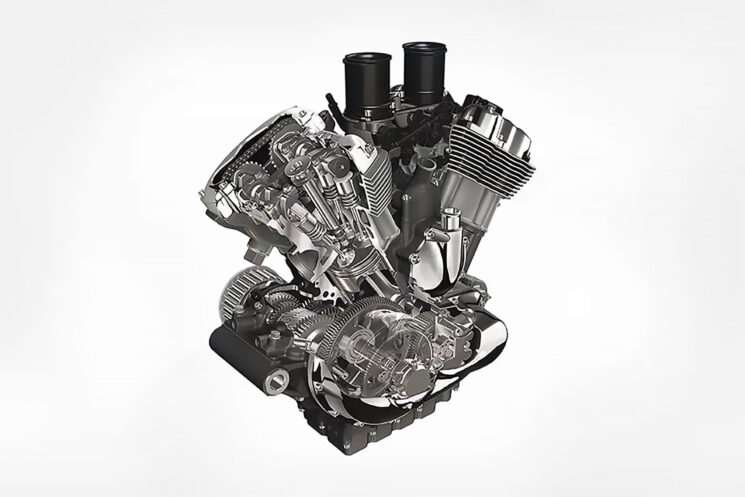
Clearly the race-only mill needed to be detuned for street use, and displacement was increased to 1,131 cc since it would no longer be used for AMA Superbike racing (where displacement was limited to 1,000 cc for twins). Its controversial liquid cooling opened the door for higher horsepower and higher rpm, and when it debuted in 2001, the Revolution engine was rated at 115 hp at 8,250 rpm, with a 9,000 rpm redline.
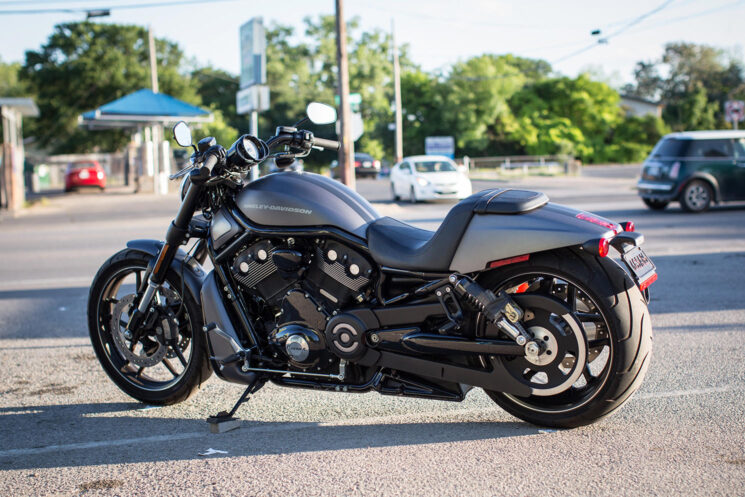
Porsche’s hand in the project started and ended with the Revolution engine, but Harley had a few tricks of their own in developing the rest of the VRSC (V-twin Racing Street Custom, or V-Rod). The hydroformed chassis was a first for Harley, and the split backbone surrounds the engine and tank like sport bikes of the day. The fuel tank was placed under the seat to bring the center of gravity down, and the faux conventional tank concealed the air box.
To complete the ‘racing street custom’ look, HD designers equipped it with solid disc wheels, a wide 240-section rear tire and shallow 34-degree rake. The radiator and other cooling components were streamlined and hidden whenever possible, and the swept exhausts were fine-tuned to achieve the distinctive Harley v-twin sound.
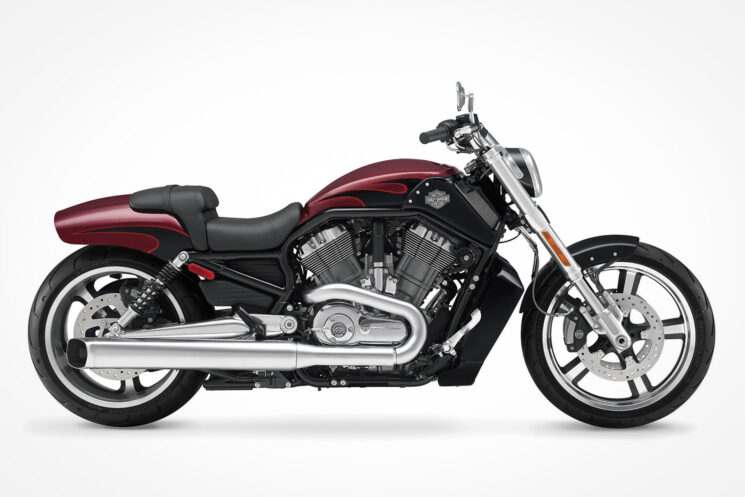
Throughout its 15-year production run, the V-Rod was offered in many different configurations and tested the market for some of Harley’s more radical ideas. The VRSCR Street Rod model, for example, was fitted with inverted forks, a steeper 30-degree rake, Brembo brakes and mid-mounted controls, clearly expanding H-D’s definition of a global cruiser bike.
By the end of the V-Rod’s time in 2017, the Revolution engine had grown to 1,247 cc, and made as much as 125 hp at the crank. In addition to proving itself on the street, Harley developed the track-only VRXSE Destroyer, which was capable of quarter mile times under 10 seconds.
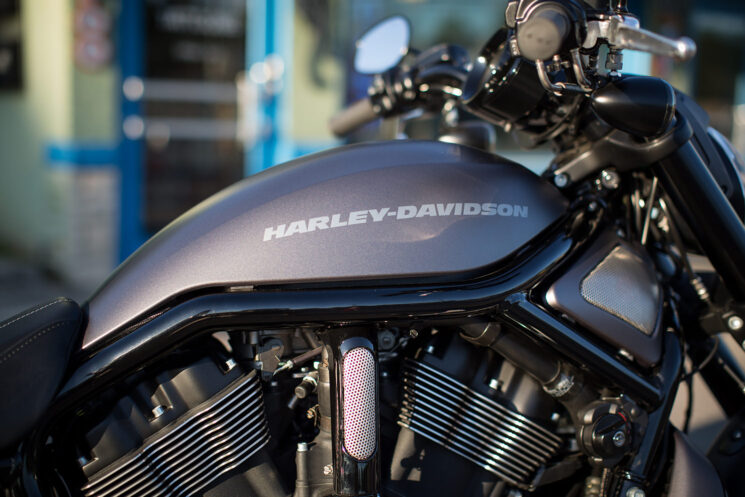
Sporty and high-revving, the V-Rod provides a unique experience in the saddle. It runs smooth from idle to redline, and won’t shake your teeth out like some of its stablemates. While Harley’s v-twins have a reputation for low-end grunt, the V-Rod pulls strong over 6,000 rpm, and will light the rear tire up on a whim. It’ll outperform stock Evo Sportys and big twins in a straight line, and in the corners as well, given its low center of gravity.
While often brushed off by Harley’s air-cooled faithful, the V-Rod succeeded in bringing new faces into the orange and black fold. Love it or hate it, the Harley-Davidson V-Rod not only paved the way for modern liquid-cooled HDs, but also ushered in the OEM performance cruiser market that remains popular to this day.
Images courtesy of Harley-Davidson and Porsche
